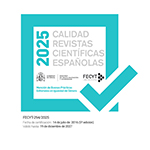German Reformulation Markers: Preliminary Survey
Abstract
Reformulation is a process of textual re-interpretation by means of which a speaker refers back to a previous discourse segment which he re-elaborates in a different way. The elements that signal this discourse function are the so-called reformulators: words and phrases which are formally and semantically heterogeneous and share the ability to undertake connective and argumentative functions at the textual level. This paper primarily intends to define and characterize the German reformulation markers. Furthermore, it proposes a preliminary classification of these units on the base of their double function as elements of text cohesion with deictic meaning and markers of argumentative strategies. The use of a perspective based on cognitive grammar will help us to overcome the limits of an analysis model based on the presence/absence of a limited set of discrete constitutive features and will allow us to define this pragmatic category on the basis of functional criteria which are directly related to the particular behaviour of these units in discourse.Downloads
Article download
License
In order to support the global exchange of knowledge, the journal Revista de Filología Alemana is allowing unrestricted access to its content as from its publication in this electronic edition, and as such it is an open-access journal. The originals published in this journal are the property of the Complutense University of Madrid and any reproduction thereof in full or in part must cite the source. All content is distributed under a Creative Commons Attribution 4.0 use and distribution licence (CC BY 4.0). This circumstance must be expressly stated in these terms where necessary. You can view the summary and the complete legal text of the licence.










